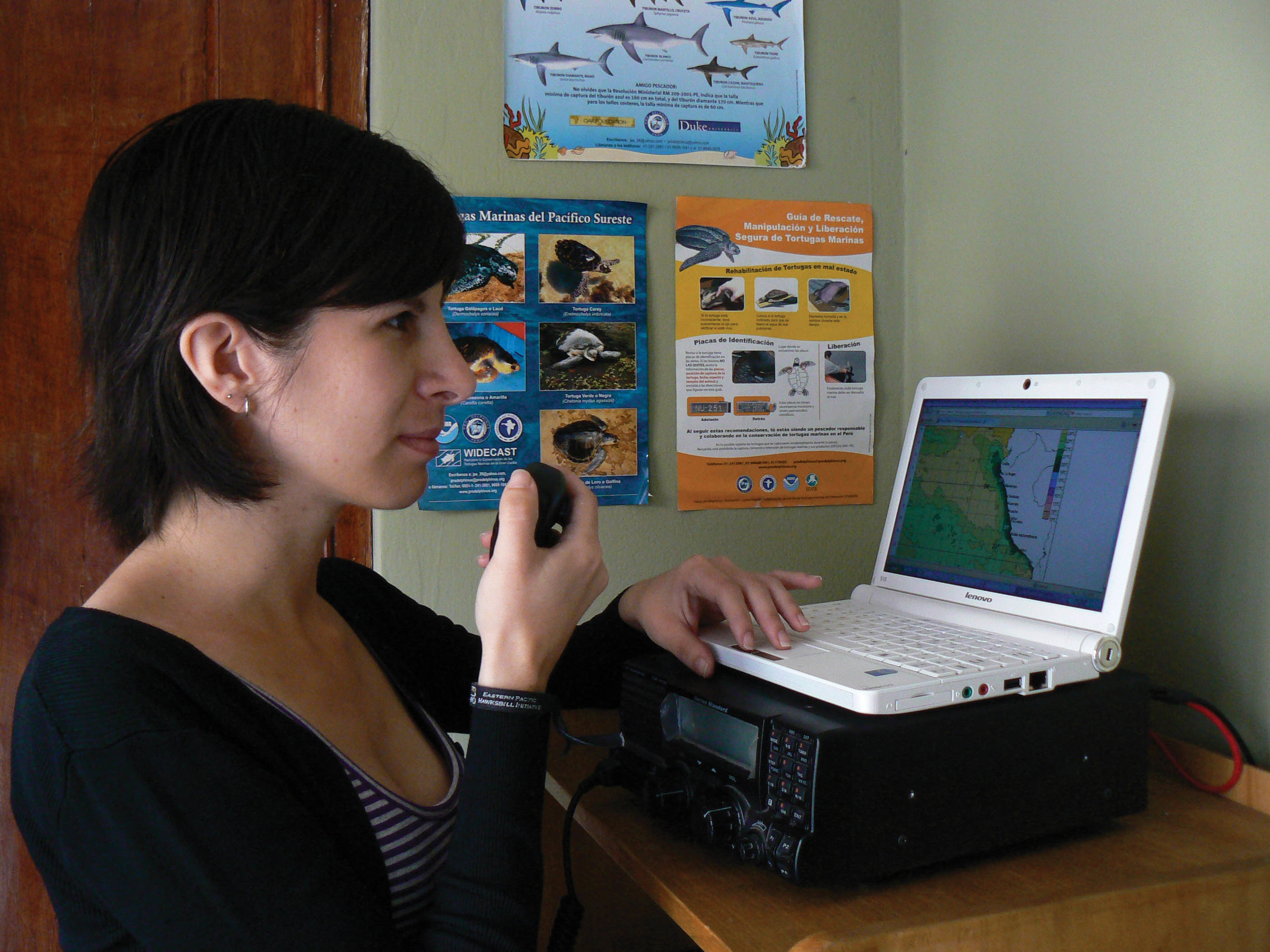Two-Way Radios Save Turtles and Help Peruvian Fishermen
Staff from ProDelphinus communicate with Peruvian fishermen over two-way radio as part of a novel project to reduce sea turtle bycatch. © Nadia Balducci
By JOANNA ALFARO-SHIGUETO and JEFFREY C. MANGEL
“ProDelphinus … uses real-time, two-way radio communication with fishermen at sea to help reduce the incidental capture (bycatch) of marine fauna and to promote long-term fishery sustainability.”
Peruvian small-scale fisheries capture many thousands of small cetaceans, marine turtles, and seabirds every year. Some of those species, such as the waved albatross and leatherback and hawksbill turtles, are listed as Critically Endangered by the International Union for Conservation of Nature. Despite the collateral damage they do, such local operations form the backbone of Peru’s fishing sector and are the main source of income for more than 200,000 coastal families. In its High Frequency (HF) Radio Program, ProDelphinus, a Peruvian not-for-profit organization, uses real-time, two-way radio communication with fishermen at sea to help reduce the incidental capture (bycatch) of marine fauna and to promote long-term fishery sustainability. By using low-cost, widely available HF radio, project personnel can reach out to fishermen over a massive geographic area to warn them about areas with high bycatch (turtles, seabirds, dolphins, manta rays, whales) and to train them step-by-step in real time about how to safely handle, resuscitate, and release animals that may fall into their nets or become ensnared by their lines. Fishermen are also provided with useful information such as temperatures, currents, wind directions, sea state, and severe weather alerts that can affect their catch and benefit their safety.
The fishermen who partner with ProDelphinus are helping voluntarily and proactively to make their fisheries more sustainable by reducing the bycatch of threatened and protected species, thus signaling the growing awareness of the huge negative impacts of fisheries on marine fauna. During the first year of ProDelphinus’s HF Radio Program, fishermen reported and subsequently released alive about 1,300 sea turtles, while only 5 percent drowned or were retained for food. With successes like this, threatened populations of sea turtles, as well as seabirds and small cetaceans, can benefit greatly, and we can hope to see improvements in the overall health of the southeastern Pacific ecosystem.
Fishermen off Peru’s coast release a leatherback turtle that was incidentally captured and then tagged by researchers. © Joanna Alfaro
The program also allows ProDelphinus to identify those vessels and their crews who are ready to go a step further in conservation. These partners receive mitigation tools that help them in releasing animals from their gear, such as line cutters, dehookers, and other devices that fishers gratefully receive. The ProDelphinus HF Radio Program has begun to provide fishers with prices by port for fish products to ensure that they are receiving fair market value for their products. Moreover, the program provides first-aid tips and training and other valuable information that can ensure the safety and success of local fishers while simultaneously promoting the long-term sustainability of Peru’s small-scale fisheries and reducing their negative impact on marine biodiversity.
This article originally appeared in SWOT Report, vol. 7 (2012). Click here to download the entire article as a PDF.


